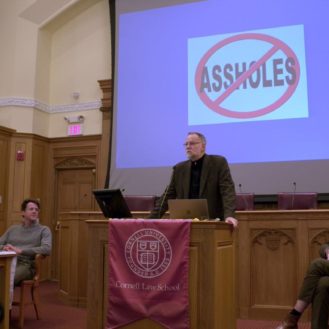Filmed against the lush hills of the Czech Republic, writer/director Petr Jákl’s historical action-epic about the early life of Czech national hero Jan Zizka (Ben Foster of Hell or High Water and Hustle) is an intense sensory experience that stumbles on its intricate politics.
For those unfamiliar with Jan Zizka, he was a general who led the Czech armies to victory against the Teutonic Order and the Roman Empire. This Czech Braveheart was known for his unusual and original battle tactics, a few of which are depicted in Medieval. From the authentic locations to gruesome and muddy battles, there are no glaring historical incongruities, and the setting is immersive and believable.
Rather than focusing on Zizka’s famous battles, Medieval zeroes in on a relatively unknown period of the hero’s life in which he was outlawed from the court. It’s a bizarre decision, especially for an English language film intended to attract an international audience less familiar with Zizka and his legacy. But maybe that’s the point. By limiting the scope of the film, Jákl has written himself a creative blank cheque. Relatively little is known about Zizka’s time as an outlaw — so when it comes to the story and script, anything goes.
If you’re a nerd who reads dense textbooks on European military history for fun, you’re in for a treat. Get ready for endless exposition. Though the dialogue isn’t terrible, almost every line is so ripe with plot and political context that it can be difficult to keep up. While the characters, including Zizka, are a bit underdeveloped, this history essay of a script is kept afloat by capable performances from a talented cast.
And when I say “talented”, I mean it.
Besides Foster, Medieval boasts the likes of Sophie Lowe (Above Suspicion, Blow the Man Down), Til Schweiger (Atomic Blonde, Inglourious Basterds), and Michael Caine (Inception, Tenet, Best Sellers). Cain and Lowe, in particular, give their characters depth and charisma enough to buoy the story along.
But, Medieval is not the sort of movie that is propelled by a complex plot or intense emotional relationships between characters. There are politics and romance, sure, but action is the main attraction.
Before each battle, Zizka prays to God, asking forgiveness for what he is about to do. The carnage that follows is gut-wrenching: blood, mud, severed limbs. These scenes are edited to perfection and the pacing is excellent: exhilarating, but slightly manic and off- balance too – the way one might feel during a real battle.
Medieval is bleak. It does not blink from the harsh and the horrible realities of medieval warfare. Yet it is not gratuitous. Instead, it offers a compelling, if incomplete, meditation on violence, war, and empire. I’m not sure that these themes are explored as thoroughly as they could have been. For example, while Zizka shows remorse for his violence and killing, the film suggests it is also part of an inevitable cycle. This may be true, but the full psychological and emotional impact of that cycle (on Zizka or the other characters) isn’t shown.
The character development may be lacking, but Medieval makes up for a weak emotional core with strong, striking visuals and attention to detail. Aesthetically, the film moves between the hard, cold stone of the palaces of the rich who control the region politically, and the lush forests and natural beauty of the countryside where the peasants and common people reside. During battles, the camera focuses on small details (a bloody glove or a helmet sinking into the dark water) that humanize the violence.
Ultimately, Medieval shows off Jákl’s capabilities as a director. I’m not sold on his script, but I’m eager to see where his talent for action and pacing takes him in the future.
**********
Do You Tweet? Follow These Tweeple:
Shannon Page: @ShannonEvePage





Be the first to comment